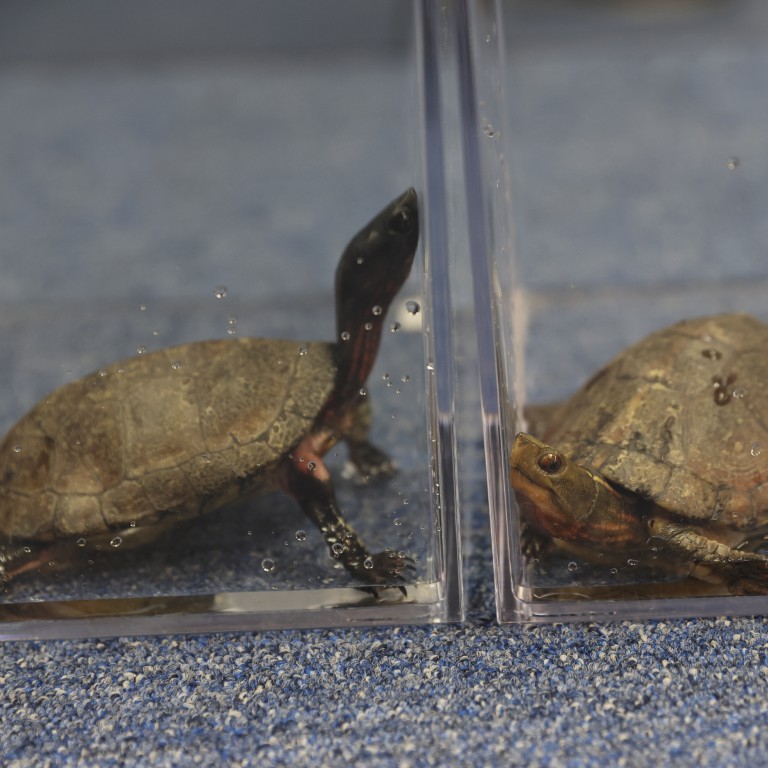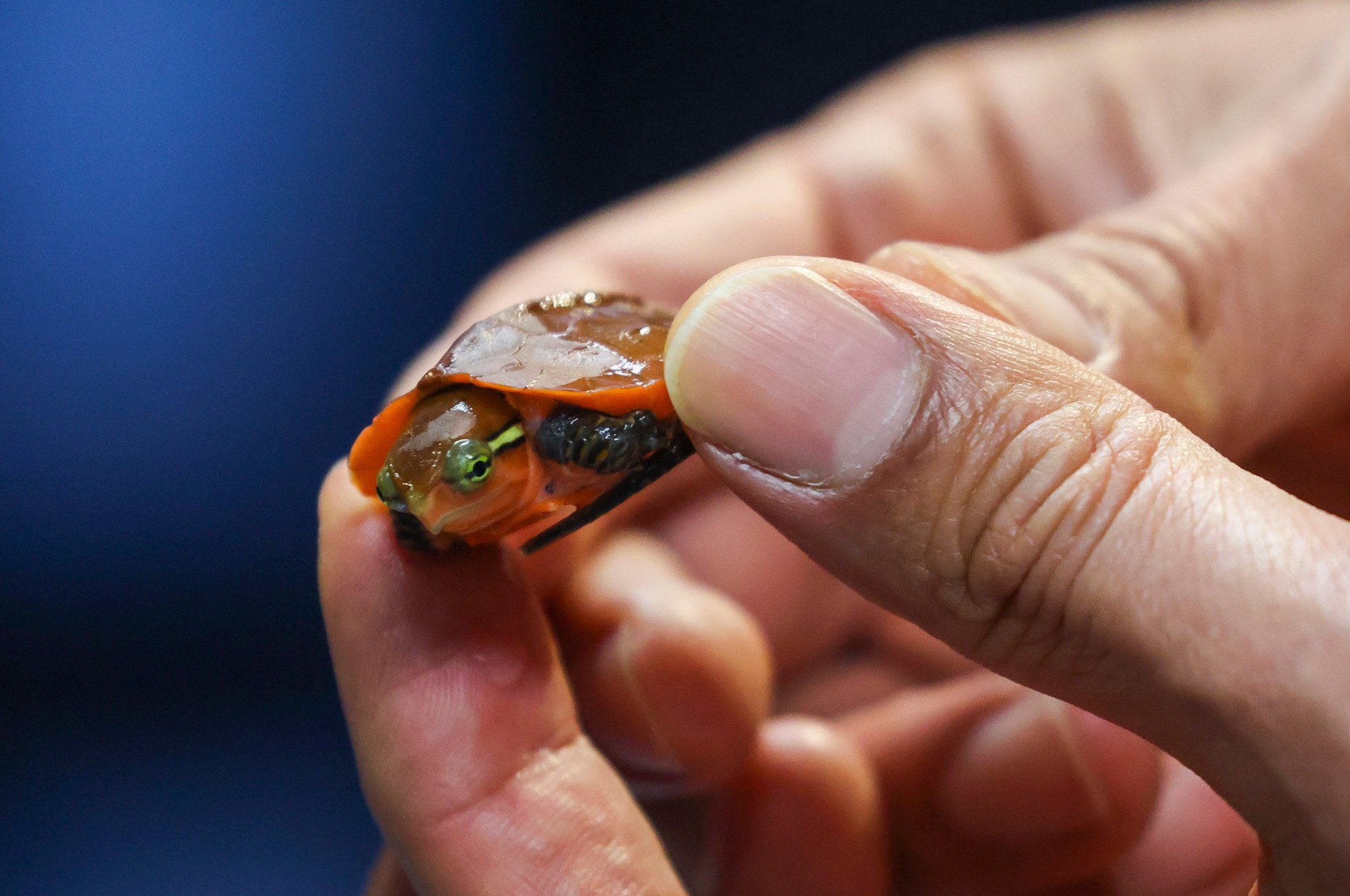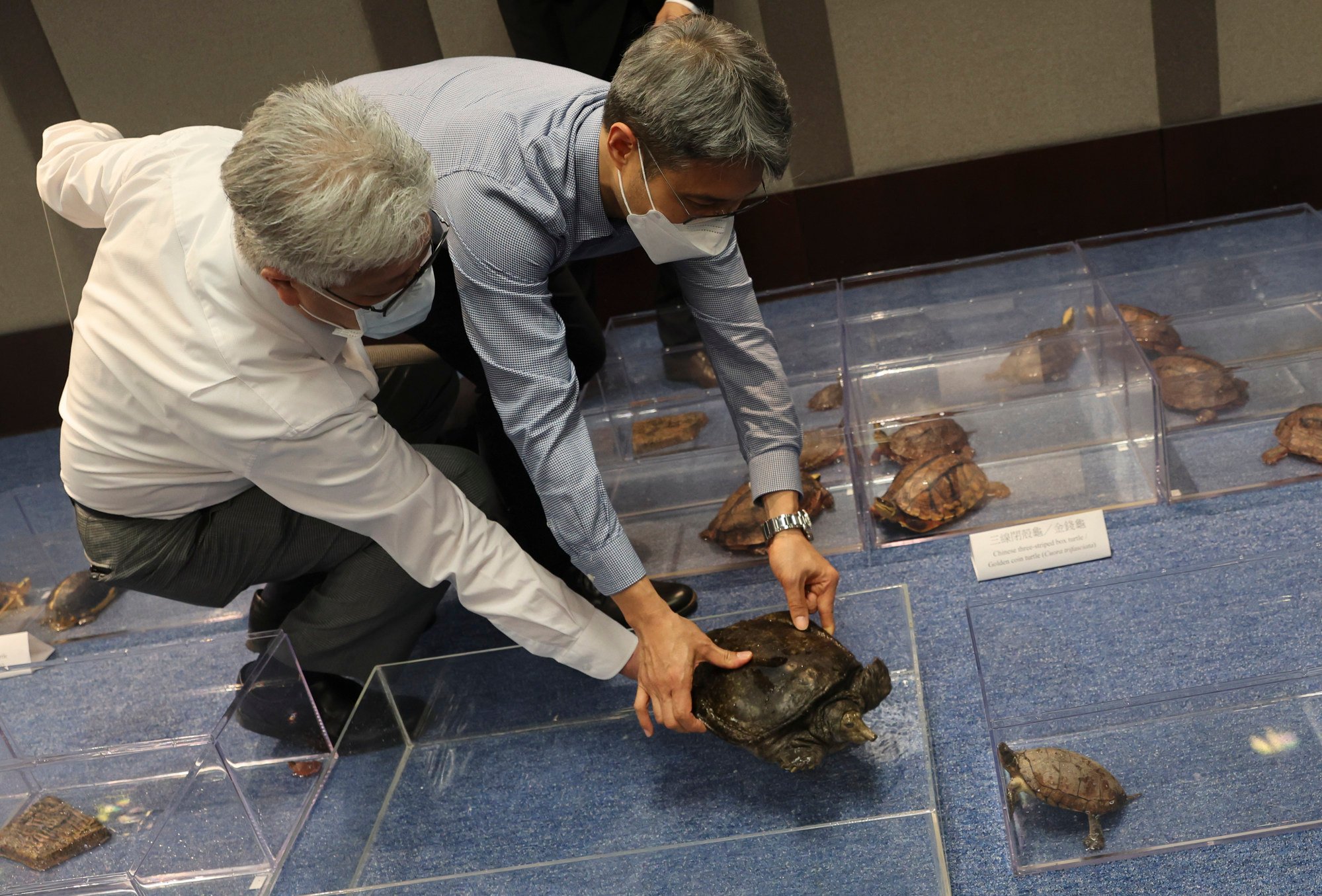
2 arrested in Hong Kong for keeping 31 turtles of rare species, in largest case of illegal possession of such endangered animals in city
- Joint raid by Agriculture, Fisheries and Conservation Department and police on Kowloon flat uncovers 21 live turtles involving five endangered species, 10 dead turtle specimens
- Three local species, including Beale’s-eyed turtles, among the haul; officers say suspects posted online they had caught the animals in city’s rural areas
Two men have been arrested for keeping 31 turtles belonging to various rare species, including some believed to have been caught from local streams, marking the largest case of illegal possession of the endangered animals in Hong Kong.
Twenty-one live turtles – involving five species – and 10 dead specimens were found in a residential unit in Kowloon on Tuesday, under a joint operation conducted by the Agriculture, Fisheries and Conservation Department and police. Two men were arrested at the scene.
It is the largest number of turtles found in local illegal possession cases.

“[These turtles] are very rare in Hong Kong because they cannot be found in all areas of Hong Kong, just limited to some areas with good-quality habitat,” said Tony Chan King-tung, a fauna conservation officer. “[We believe] some of them are hunted locally.”
Three local species were found in the operation, namely six big-headed turtles, three Beale’s eyed turtles and nine golden coin turtles. They inhabit streams with clean water.
Two non-local species, a wattle-necked softshell turtle and two yellow-margined box turtles, were also discovered, and officers say they believe the animals could belong to species found in Africa or Southeast Asia. The department is also investigating the origins of the 10 dead turtles.
The department said the suspects claimed on social media they had caught the turtles in the city’s rural areas, and traded local and overseas endangered species in Hong Kong. Officers are investigating whether they have been hunting wild animals illegally.

“It seems the turtles are kept for [commercial purposes],” said Edward Lau Tak-chuen, an endangered species protection officer, adding that they were investigating whether the turtles were meant to be sold as pets.
Officers did not provide details on the two arrested men. However, they found suspected hunting appliances, including nets, bait, tools to lift up stones when searching for turtles, and hats with torches attached.
All five turtle species found are listed as either critically endangered or endangered species by the International Union for Conservation of Nature Red List of Threatened Species, according to the department.
Hong Kong ‘complicit’ in growing exotic pet trade, group warns
They are also protected under the local Protection of Endangered Species of Animals and Plants Ordinance. A licence is required for their import, export or possession.
Any person contravening the licensing requirements will be prosecuted and may be subject to a maximum fine of HK$10 million (US$1.27 million) and imprisonment for 10 years on conviction.
The Wild Animals Protection Ordinance was enforced to prevent residents from hunting, possessing and selling local wild animals without a special permit. Any person convicted of contravening the law will face a maximum fine of HK$100,000 and a year’s imprisonment.
The department said it had not estimated the market value of these turtles but that some could fetch a price of up to HK$10,000 each, depending on the size or species.

